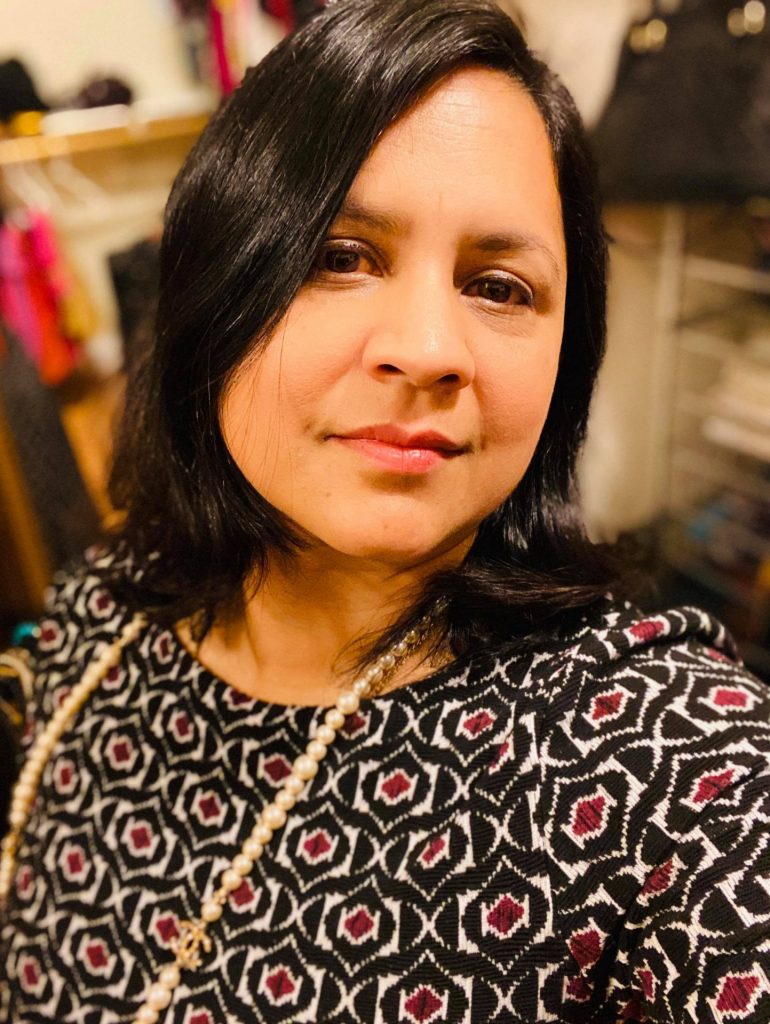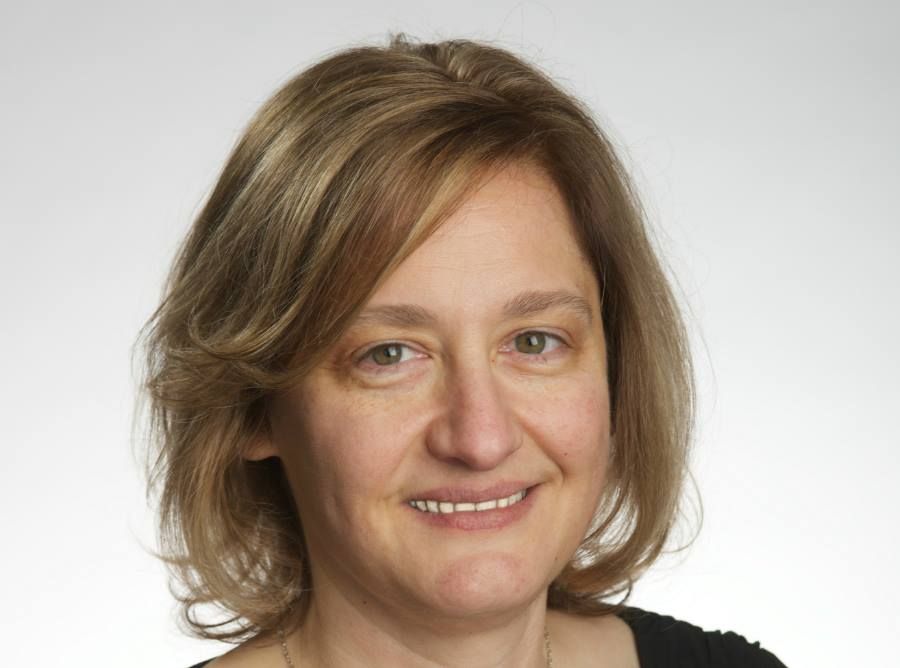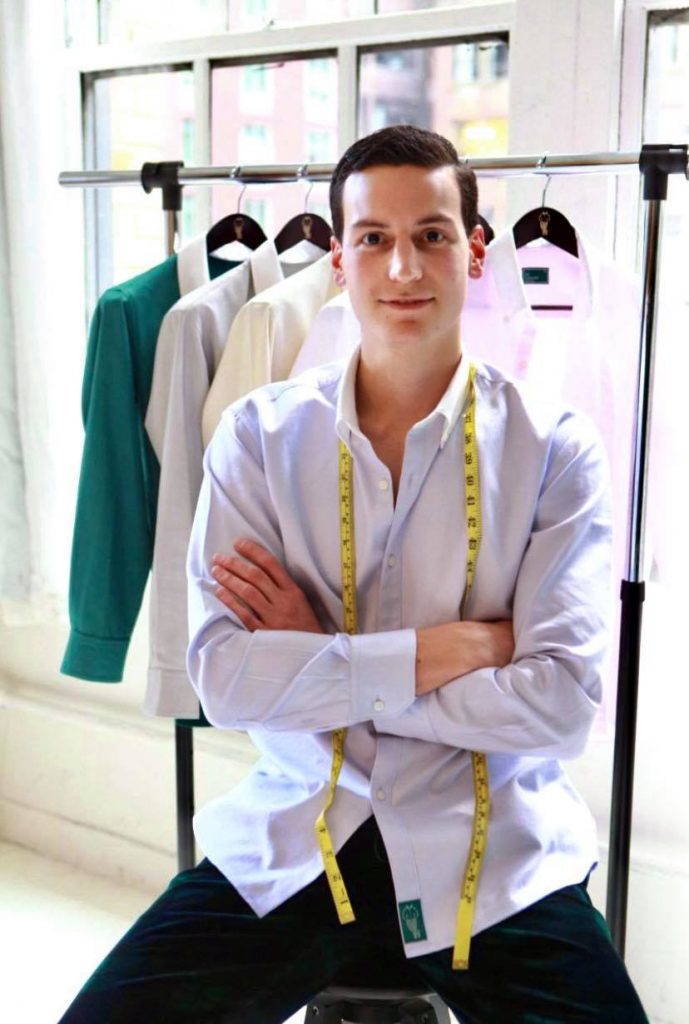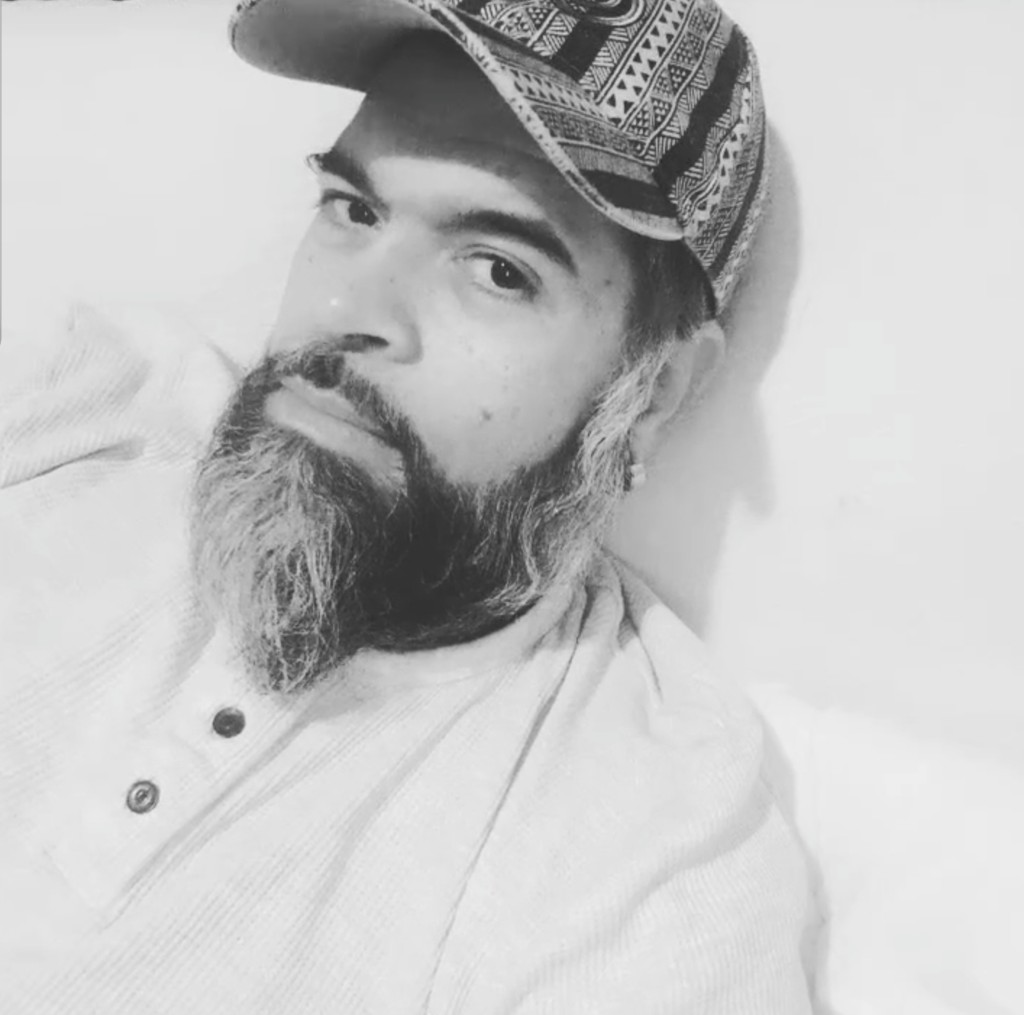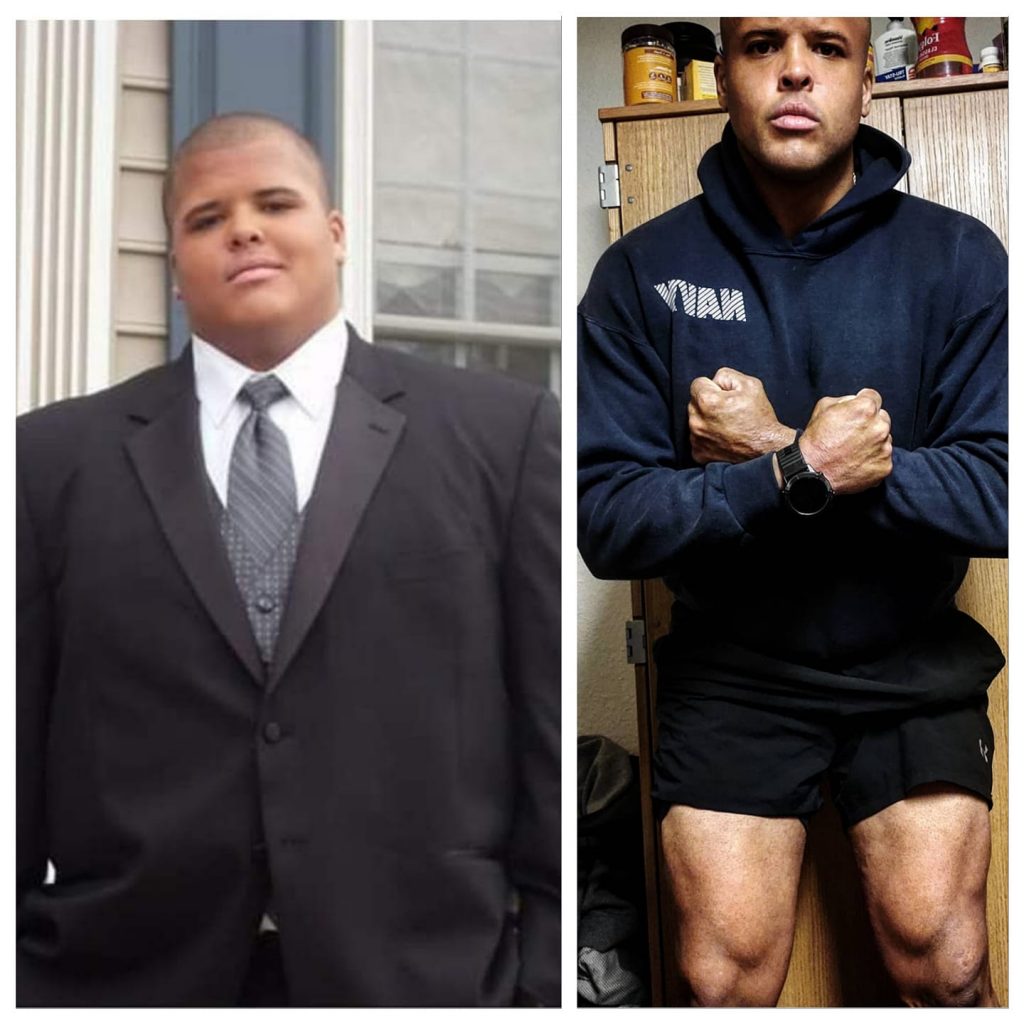Jaya Iyer was a fashion academic until her children were born. Her son was diagnosed with leukemia which presented its own challenges. Her daughter wanted to be an astronaut but there were no products that catered to her needs. And with this, Jaya created Svaha, a geeky-themed fashion brand.
TAMAR: Hi, everybody. We are in Episode 28 of the Common Scents podcasts. Amazing. And I have another person in the time zone that I’m in. Yay. Today I have Jaya Iyer and she is checking in from Virginia. Hi, Jaya, thank you so much for joining.
00:39
JAYA IYER: Hi, thank you so much for having me.
00:43
TAMAR: It’s so crazy right now. I mean, we’re in crazy times. I certainly know that all of us are dealing with a lot of uncertainty these days. But even so, we’re trudging along. And I mean, I know for you in particular, you have an interesting background, and you’ve been able to trudge and you continue to do so. So, introduce yourself and just tell us how you got there.
01:12
JAYA IYER: So, I am I was born and raised in India, I moved to the US almost 20 years ago now to study further and my background is in fashion merchandising. So, I have my all my education, educational qualification, everything all the way up to PhD in fashion merchandising, and I was in academia. I did that for five years, I used to teach fashion buying. And then I decided to move to the industry. And, and then I quit the industry because I had two kids. They’re eight and 10 now, and I wanted to stay home, be with them for some time. And I, I guess I just couldn’t do that because I’ve never stayed home. I’ve always been working all my life. So, one day when my daughter asked me, “Hey, you know, I want to grow up to be an astronaut, can you buy me a T shirt with an astronaut on it, and I couldn’t find anything in any of the stores. And so, I decided, okay, I’m going to do something about it. And I started my company, that’s Svaha USA. And the whole focus of the company is to create STEAM-themed apparel, the science, technology, engineering, art and math. It’s for children, for adults. And then now it has expanded into accessories and anything that you can think of with the STEAM team. So, I’m currently running that company, based out of Virginia, and it’s just all online. I have a few employees; they’ve grown a lot in the last five years that I’ve been in business.
02:46
TAMAR: Awesome. Awesome. That’s great. I love the fact that you’re catering to the STEAM world. I also came from this tech space. And it was a very unfriendly territory. I’m a girl who builds computers. I’m a girl who likes to do systems administration stuff. And yet, I wasn’t able to feel there’s anything that was approachable to me as a woman or a girl at that point, who wanted to get into technology. I mean, the fact that I tell people I build computers is still baffling to them. People don’t get that, but I’m into that. I like it. And I love that you’re catering these, that we really need to appreciate the fact that girls want to become more active in the STEAM world. So, kudos to you for doing that. I love that you’re able to kind of evolve your love for your daughter, your love for fashion and put it together to something that’s very cool. I can’t wait to see what you have and you’ve created for them.
03:52
JAYA IYER: Thank you. It’s been exciting. In fact, I initially just started with kids line and we had so many parents reach out to us saying hey, I want to wear that too because I’m in the STEAM field and I want to show my love for what I do and I just cannot especially if they were a coder or in the tech field. They just almost felt forced to dress up like the other men around them because they didn’t want to stand out because there were so few of them. And then the most common comment right if you are in tech or any field which is male dominated is oh, you don’t look like you are a tech person. I mean, how exactly is a tech person supposed to look like? So, we decided that we just had to do something for all these women who could dress feminine and yet be able to have circuit boards on their dress and feel like look, I like this and I’m still a woman and it’s okay.
04:52
TAMAR: I love it. I want circuit boards on my dress. (Laughing). I don’t wear dresses that’s not true. I do wear dresses, but I love that celebration. That’s something that it’s such a conversation maker, it’s such a conversation creator, difficult to do in zoom these days, but at the same time, it’s so cool. I love it. I think it’s amazing. You talked about how you were in academia. Explain a little bit about what you were studying and where it all came about? I mean, because it’s clearly a massive shift for yourself.
05:26
JAYA IYER: Yes. So, I actually came to the US at University of Georgia to do my Masters in Fashion Merchandising. And when I was in Georgia, I was a grad assistant. So, I used to be a teaching assistant. I was teaching, Textile Chemistry to the undergrads over there. And while I was doing that, I really enjoyed it. And I felt that this is what I want to do. And so, I decided that I had to do a PhD if I wanted to be in academia. I went to Iowa State University where I got my PhD in the same field. I did study consumer behavior in the fashion field. So that’s what I was doing. And then right after I finished, I met my husband who was in Chicago then. So, I moved to Chicago for a year. And then I got a job. My first teaching job was in Arlington, Virginia, at Marymount University. So, I did teach fashion buying there for five years. After I had my kids and my husband was traveling all the time, I didn’t like that my kids didn’t get to see my husband. And it was not possible for me to keep canceling my class if I had to go somewhere or take care of my kid. So, I just decided that I couldn’t do it anymore. So that’s when I left academia. I did love teaching; it was something that I was very passionate about. I wrote a book while I was teaching. It was about international retailing in emerging markets. So, it’s actually a textbook used in some universities right now to teach international retailing. So, I love doing all of that. That’s awesome.
07:11
TAMAR: Very, very cool. Yeah. I just want to ask you this question. I assume I know the answer because I know what you’re doing these days. But given the fact that most classes are on zoom, you can go back to academia.
07:29
JAYA IYER: I think it’s easier to keep the attention of younger kids, I think a lot harder when it’s older kids. Teaching teenagers even while I was in a classroom to tell them put your phone away and listen to what I was saying was such a challenge. And now just being on Zoom, I really can’t tell what they’re doing or even listening to me. I think it would be much harder. I don’t know if I would be able to do it because I was one of those teachers who told the kids to leave the room if I saw them looking at their phone. So, I don’t know how I would manage that.
08:07
TAMAR: Yeah, it’s funny. You say it’s easier for younger kids. I don’t know about that. I think it depends on the kid. My youngest two are very good on YouTube, on YouTube University. Not so good on Zoom University. My older two, who are eight and 11 were better in the classroom, in the electronic classroom, but obviously they hated it. No one really loves it. And then I also had a friend who was in nursing school. When the school shut down, they transitioned him to free YouTube classes. And he said, that’s not what I paid for. And he withdrew. So, I think it depends on the person. I don’t even know if there’s an age limit. I don’t think I can resume university. I am trying to get through the Coursera course right now. The Science of Happiness, it’s Laurie Santos’. It’s a great science of well being
09:05
JAYA IYER: I heard about that one.
09:06
TAMAR: Yeah, it’s pretty amazing. So, she’s doing a free class, and I’m trying to get through it. But there’s just so much going on, that’s really trying to pull my attention in so many different places. And they say make time if you need it, you can make time. That’s very true. But right now, I’m making time for fitness and I’m making time for eating better. So, I can’t make time for this class. And that’s the nature of the beast these days. Yeah. Anyway, I know you have a story about the beginnings of your business and you’re overcoming adversity. So, I would love to hear that. Please feel free to get vulnerable.
09:51
JAYA IYER: So, I started the company in 2015. And it was started from the basement of mine, then business partner. I don’t have a business partner anymore. But we started it in her basement. And then eventually after one year, we outgrew her basement, and we decided that we were going to move out to a warehouse. And so, we started the search for warehouse. And this was in about 2017, we were still looking. And we finally found we were trying to close our warehouse. And I found out that my son was diagnosed with leukemia. He was seven years old then. And it was probably the worst thing that any mother can hear about her child having to go through and it’s a long three-and-a-half year treatment. It’s rough on the family and on the kid, and all the people in the world are currently experiencing this whole lockdown, because of which they are stuck at home, they can’t go out, they have to wear masks when they step out. That’s been our life for the past three years. So, when someone complains to me right now hey, this is so difficult, I’m like, huh, tell me about it because my son would constantly have treatments going on, because his blood counts would drop so drastically that he would be extremely susceptible to getting an infection. And every time he would get an infection, we would all have to be hospitalized, which would completely mess up our life because I had another little girl at home who would have to then be left with the grandmother. And then my husband and I would have to take shifts in the hospital, staying with him because obviously we couldn’t leave him alone. So, because he was so susceptible to picking up infections, none of us would step out, we had a friend of ours who would do grocery shopping for us. And we would just stay at home and not step out, not let anybody come into our house. And we’re practicing social distancing. So, it was rough. It was really, really difficult time for one year. I didn’t know what I was doing. I didn’t know when I married Dave it was night, it just felt like a really, really long, difficult phase of my life. But then I saw my son dealing with what he was going through, which is really hard for a seven year old to constantly be sick, constantly be hospitalized, not be able to go to school, not be able to see his friends. It just made me feel that if he as a seven year old could deal with it, I should be able to deal with it. At least I understand what’s going on. And he constantly feels why am I in this situation. And for me, I understand we are in a situation, but there’s nothing we can do about it right now. All we can do is figure out how to get out of it happily. So, I set up a system in which I would get on a phone call with my team every morning, tell them what needs to get done, how we do it. And I continued doing my part of the work which the main part that I handle in the business is of course the finance and accounting part of it, but I handled the design and dealing with the factories part of it. So, I could easily do that on the phone and on my computer. But my team needed to get some guidance from me. So, I figured out a system where I would call them every morning, work with them, tell them what needs to get done and deal with the factory. And it worked out. In fact, sometimes I used to feel that my work was my therapy that I needed. I was so focused on my son, the hospital, the doctors, and medicines and everything that I needed this time that I could get away from everything and be able to focus on my work. So, my son is still in treatment. He’s doing better. And my company’s growing. So yeah, we did it.
14:18
TAMAR: Wow, I was going to ask that question. How is he doing right now? How is he? How is he holding off? I mean, how is the family holding up all of this? I mean, it’s relatable.
JAYA IYER: Yeah. My kids have not gotten impacted by this whole Coronavirus thing at all because they have been doing this for three years now. So, in the beginning when it started three years ago, when we were isolated from the whole world, it used to be hard for them because my daughter was like, why am I not going to school? I’m like, if you go to school, you pick up germs, bring them back home, your brother gets sick. So, she would have a hard time understanding it then, and then she got used to it and now they’re like oh it’s one of those times again. So far, none of us seem to be bothered by it at all, which is in a way, life prepared us for what we’re dealing with right now. And it’s so much harder for so many other people. He’ll finish treatment in November. So, he’s definitely in the last phase of treatment. It’s still hard for him, he still has hard days, side effects of all the chemo that he has to deal with, throwing up and stomach aches, and all that kind of stuff still goes on. But there’s light at the end of the tunnel.
15:40
TAMAR: I love the attitude that there is a future and everything is going to be bright. I can see it. I think that also helps in terms of how he is, I’m sure as a collective family, knowing that everything is going to be okay, really helps in terms of his perspective toward everything.
JAYA IYER: Exactly.
TAMAR: Yeah, and I think what you’re doing is the right, the best possible thing you could do as a parent. It’s just be resilient and strong. And you’ve got that. So, it’s absolutely incredible to hear it in your voice and to know, like I pictured for you. So, it’s great.
16:27
JAYA IYER: Yeah, in fact, my son, his whole memory of one year of school that he missed is actually a year full of fun. That’s what he remembers because I built a million Legos with him in that year that he was at home, not being able to go to school, and he got interested in cooking. So, we would cook and baked, and I have baked I don’t know how many different desserts. So, he remembers that one year of like, the intense treatment where he couldn’t go to school. And he was in and out of hospitals as the most fun part of his life, because he built so many Legos, and he did so much cooking great.
17:02
TAMAR: It’s good that he’s getting a holistic learning experience. My kids, they’re doing things because they want to bake and they want to make food because I’m not doing it for them. It’s great that you guys are coming together and making things normal and having him enjoy everything he can because it’s tough, it’s very difficult as a child to go through so much. And you got to make it so that when they look back, these things were such a good experience for me as coping, or whatever it is. Yeah, so I think that’s part of his self-care routine. I guess I would ask how are you doing? What are you focused on yourself? How are you doing your self-care?
17:51
JAYA IYER: So, it was very hard initially, because I was so exhausted all the time between my work and being full time almost taking care of my son all day because he would not feel like eating. So, I was so busy cooking different meals, trying to figure out what he’ll eat and what would make him feel good. For almost two-and-a-half years, I just did not think about myself at all. And finally, now that he’s doing a little better, I have started meditating. I have started doing a lot of breathing exercises. I really try and focus on positivity, like positive aspects of everything in my life. And how I also practice affirmation every morning I wake up and I tell myself how I want my life to be. And I believe that if you say that every morning, the world comes together to make it happen. I just believe that. And so, I wake up and I tell myself what I want in my life and how I see my life. I do wake up before my kids wake up so I can get some workout. I do Yoga, or I do stretches or everything that I can. I also had almost stopped talking to a lot of my friends while I was going through this issue because I almost didn’t want to talk to anyone about how’s your son doing now or what’s happening because I just said that not everybody needs to know about the sad things that are going on in my life. But now that I don’t have that to talk about, I have more to talk about. I tried to make it a point to call my friends and talk to them because it makes me very happy talking to some of my really close friends. So, I guess all of these things are what I do. And at the end of every day I feel very positive and happy about my Life.
20:00
TAMAR: I love that. I think that’s amazing. And I think it’s so important, especially now that we need to communicate with our friends. I think it’s so critical. And it’s funny because I’ve definitely visited this conversation multiple times on. Right now, in the pandemic, you get to find who your people are, like, I know for me, I feel obligated to start reaching out to friends and family to just express whether or not it’s for anything in depth, but just to see how people are doing. I think that sense of connection is felt so much more. A lot of people I think, struggle with where we’re going, and how, what’s going on in the world these days. And how we’re going to keep our sanity together, given that social connection is so few and far between these days. So being able to pick up the phone and maintain some semblance of connection is like, I can’t stress how important that is for self-care in general. And it’s also not just about for yourself, though. It’s for others. I think everybody appreciates that. So, I think that’s great. The meditations, the affirmation, I think, that’s so important. And I also think it’s setting the intention in the day. It’s so weird and it sounds cheesy for someone who’s not familiar with this mindset, and how that can change the whole entire trajectory of your day. But it really is. Like, two nights ago, it was 11 o’clock at night, my second in command at the company that I’m trying to Bootstrap launch, I’m doing things in a very unconventional way, messages me saying I’m working on the presidential campaign; I don’t have time for you anymore. And it was completely unexpected, especially because a lot of the other work that she has is based on me giving her work, like getting her client work. So why do you just take another job and throw me by the curb. It was really hurtful. And I went to bed, like bummed out thinking that Monday is going to suck. And then Monday came along, and then before I went to bed, I wrote a little thing in my journal saying tomorrow is going to be a good day. And intention changes everything. And yesterday was not a crappy day. And I don’t know, it’s small things like this, that feel so genuine, like not so genuine. But they really make such a difference. And I mean, it’s nice to have you here, it helps me validate that my direction. I hope what I’m saying validates yours.
JAYA IYER: Yeah, and definitely it works. I always tell myself that some days I wake up, and I feel that if I just look at the mirror and tell myself, oh my God, look at your face, you look like you could do with three more hours of sleep and the whole day I’m thinking about, oh, I should be sleeping, I’m so tired, I’m so exhausted. And then instead, if I look at the mirror, and I say wow, you look amazing, and then that certainly just brings a smile to your face. And you just feel good after that, right? So, I just feel that it definitely works. So, I always tell myself, I’m going to make sure that I do something today that work, that I’m moving towards a healthier life. And then I make it a point to do something and I teach these things to my kids, I tell them that if you really want something, say it to yourself every morning so that all your actions during the day will work towards achieving that goal and getting to it so and they believe it and they actually practice that already.
23:49
TAMAR: Yeah. I think it’s really hard though, when you start doing this and you’re coming from a place of a little more darkness to kind of convince yourself that this attitude, this belief system works. But it’s about figuring out how to climb out of that hole. And once you’re out of that hole, the belief system does work. It’s so funny because I see my earlier self, kind of in doubt, and it feels like Voodoo science, but we’re saying is true. It’s just you might be tired as heck, where you look tired as heck and you say I feel amazing, and you do. It’s transformative.
24:33
JAYA IYER: It’s actually a way to, I mean not exactly, but it’s almost like you’re fooling your body. Because of the feeling that you’re saying actually almost fools your body into believing and hormones in your body are released, that make you happy. There is supposed to be some science behind it, but I can’t explain it, but I have read a lot about it. And it says that it’s all about how you feel, and how you energize your body to feel. It’s difficult to exactly pinpoint how meditation helps, but everybody knows it helps, right?
25:13
TAMAR: Yeah, I tell you, I still struggle in meditation, I can’t sit still for that long. I come, I go, I have a Calm lifetime membership. So, it’s not like I don’t have a means of doing it. It’s just a matter of the belief system. But on the other hand, the affirmations make, it’s suggestive in some way and it’s really hard. Like, if you really don’t believe it, you’re fighting back in on the belief. But if you just hear it in the back of your mind, without any sort of preconceived notion, it works. Like one I have a decal on my bathroom that says be awesome today. And it’s something that right now, because of my multiple, regular exposures to it, it manifests in my actions. And if I sat there and stare at it, and I fought back at it, and I said I’m not going to be awesome today, then I’m not going to be awesome today. But that’s because you’re fighting back. It’s the way meditation works, which is why I like that you tie in there. If you’re fighting back meditation, it’s never going to work. But if you let it in, and you just let meditation do its thing, it works. So even though I can’t get the meditation thing, I could get the belief system of these motivational posters and whatever else and all these nice quotes that I always find online for self-growth. I believe in it because I think meditation is a mental thing for me. Like10 seconds of absorbing mentally, sitting somewhere and mentally absorbing that quote overwhelm me and take me over. It makes a difference. So, if meditation is not for you try that quote. The quote thing?
JAYA IYER: Yeah.
27:01
TAMAR: Yeah. Cool. Well, let me ask you. I usually end with this one last thing here. It’s a a loaded question. So, they say, if you could give an earlier version of yourself a piece of advice, what would you tell her?
27:21
JAYA IYER: I would say, to be a little more relaxed. I think I was very hyper about everything in my life before. And everything, people, bothered me. I think one of the biggest things that I have changed today about myself is that I would always tell that, oh, this person is annoying, or this person is irritating, or this person I don’t like. And this is what I teach my kids nowadays, and the way I have changed is that I always tell that you have to be in control of your happiness, you can’t tell somebody else makes you happy, or somebody, some situations, makes you happy or unhappy, right? So, you cannot let anybody else control that because if you are letting something else control it, you’re giving away control. In fact, the best way to have control is to control your own emotions, and not let something or somebody else control it. And I think that if I had known this, I would have been a lot happier. A lot more at peace with myself. And with everything around me earlier. But I guess, you grow old and you learn. I always tell myself now that okay, I use somebody else. If I’m getting irritated with something else, it’s up to me, I am not going to let myself get irritated. So, I feel happy then. That’s what I tell my kids when they tell me that, oh, this person did something and I’m like, but how you feel for that person is under your control. You can’t let that person control how you feel.
29:05
TAMAR: That’s great. Yeah, that’s a good piece of common sense. And I finally figured out these takeaways. I should call that part common sense. I’ve only had my podcast for what 20, 27, yeah, 28 episodes. And I figured out that last piece of advice is the most important part of tying in the name. It’s funny, because going back to losing my main person, she had said to me that she has been saying yes many times. But if she says no, she’d be resentful. And instead, you turn the table around, and I would potentially be resentful to lose somebody that I thought was really an imperative part of my campaign. And then I said to myself, I don’t have to be resentful. I’m in control of my emotions. And I wrote a blog post. Not a blog post, I wrote a social media post, I scheduled it for next week. But I wrote about that experience that it’s about your attitude in the end of the day and how you perceive things. So, you can choose to dwell or you can choose to do and I choose to do so. It’s really, really timely tie in. So, thank you for that. Yeah, cool. Well, so where is the website where people can see your products and learn a little bit about you? And of course, I’m going to get some more information from you as well to share but just make sure it’s in the podcast itself.
30:33
JAYA IYER: Yeah. So, my website is www.svahausa.com. It’s S, V, H, A, USA dot com. And sometimes it’s difficult to remember. So, we also have www.go. Stem google.com, which redirects to my website. So, you get
30:52
TAMAR: there. Yeah. Cool. Cool. Love it. Awesome. All right. Well, if there isn’t anything else, I guess this is all. Thank you so much for your time and for sharing your story.
31:04
JAYA IYER: Thank you. This was amazing. It’s one of the most unique podcasts that I have interviewed for. So, thank you for having me.
Podcast: Play in new window | Download (Duration: 31:19 — 35.3MB)
Subscribe: RSS

